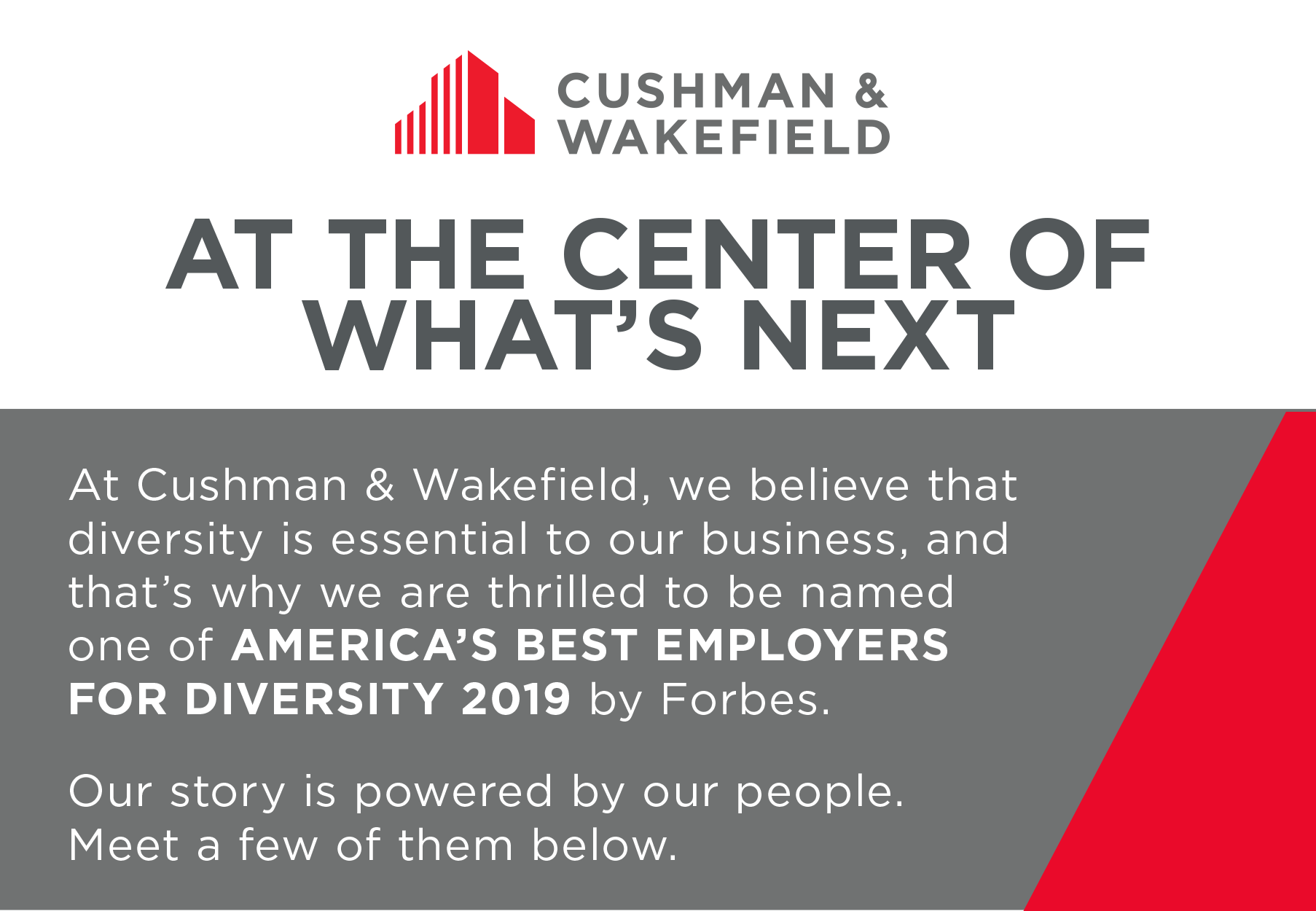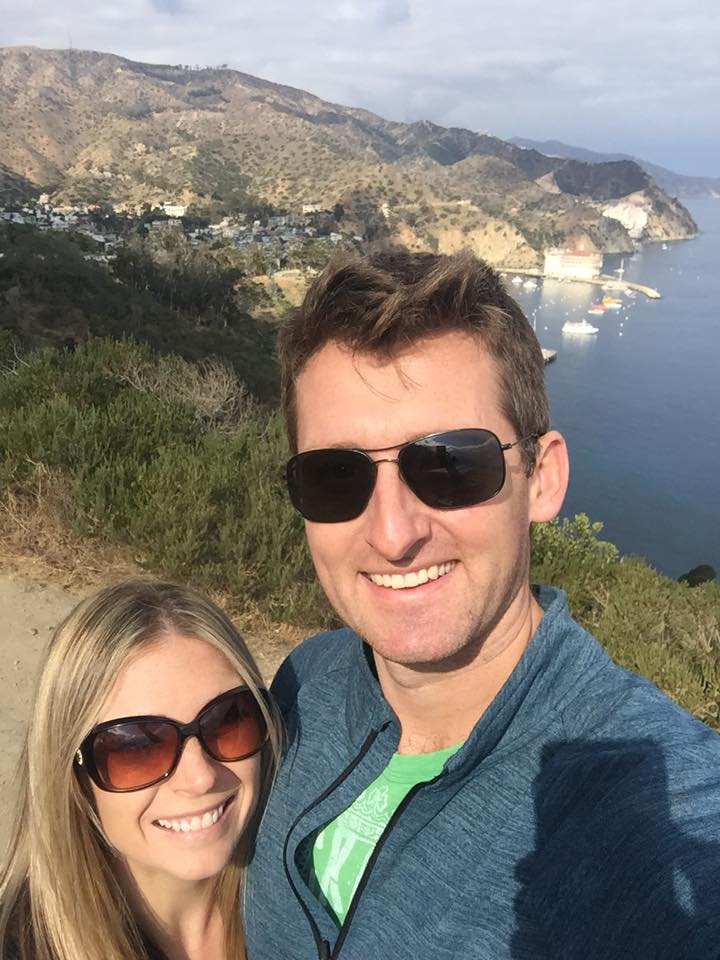| With the world constantly changing, how has your job, or client’s job, evolved over the past 10 years? |
| As a Business Development Director, my job is to tell stories. That central role has evolved and become more strategic as my knowledge of the business grows. I went to graduate school for creative writing; I believe in the power of words and the importance of authenticity. When we sell, we as writers have to make sure that C&W’s value jumps off the page and into the client’s consciousness. My ability to do that has improved through candid and thoughtful conversations with brokers and subject matter experts—the people in the field who are doing the real work to improve the lives and businesses of our clients. Every day my job feels less like selling and more like educating, because I truly believe in the value we bring to the table. |
| Tell us about your story. How did you come to Cushman & Wakefield? What do you do? |
| Istarted my career in nonprofit, working in the School & Youth programs at the Leukemia & Lymphoma Society. After graduate school, I moved to the West Bank to teach classes at a school for refugee women, children and students. Upon returning to Los Angeles, an unlikely door opened to the world of commercial real estate. I started as a writer, and four years later C&W approached me with an opportunity to use my ideas and experience to make an impact at a dynamic company. I’m so happy I took it! I now focus on business development (writing, content creation and strategy) for Portfolio Solutions, working on a three-person team with two brilliant and inspiring women. |
| Why do you work here at Cushman & Wakefield and not somewhere else? |
| From the first ten minutes of my interview, I knew I wanted to work at C&W. They started the conversation by asking questions: What am I good at? What do I want to do long-term? What opportunities for improvement have I observed within the industry? In my experience, this is emblematic of the company as a whole. Leadership is always listening, and all ideas are welcome and encouraged. Some are accepted and some are shot down, but there is always a thoughtful discussion and an earnest attempt to understand. And we all have the same goal—to collectively elevate the company and better serve our clients. |
| Cushman & Wakefield has one of the most interesting growth stories in our industry. How has our recent momentum made an impact on your role or created opportunities for you? |
| I came from a firm where all processes, structures and hierarchies were fully mature. While there are benefits to that, there also wasn’t a whole lot of opportunity to affect meaningful change. C&W provided me a chance to vocalize my ideas with the hope that they might make a real difference. There’s no better job satisfaction than that—to see a challenge, propose a solution and observe the long-term impact. |
| With the breadth of services we have now, how are you able to do more today for your clients? |
| The GOS platform has given me—and the sales professionals and brokers I work with—a path to engaging some of the smartest subject matter experts our industry has to offer. That kind of accessibility leads to faster and more impactful solutions for our clients. There is no real estate challenge we are not equipped or creative enough to solve. |
| What solution, achievement, or moment is the best example of your passion while either working at Cushman & Wakefield or in your personal life, or both? |
| I taught Creative Thinking to children in the West Bank, many of whom had grown up with armed conflict as a daily reality. Between the language and cultural barriers, and my responsibility to write my own curriculum, I struggled to connect with the kids for the first several weeks. One day I decided to do a project (the Egg Drop) that I’d learned in elementary school in Ohio. It’s haram to waste food, so we used water balloons instead. The kids packed them in a variety of materials and dropped them off the roof of the school, where I stood near the target. Every time a water balloon popped it exploded all over me. Maybe it was the universal language of self-deprecation, but that project broke the ice and the students were much more engaged from then on. I hope they still carry a nice memory from that day, as I do.
|


